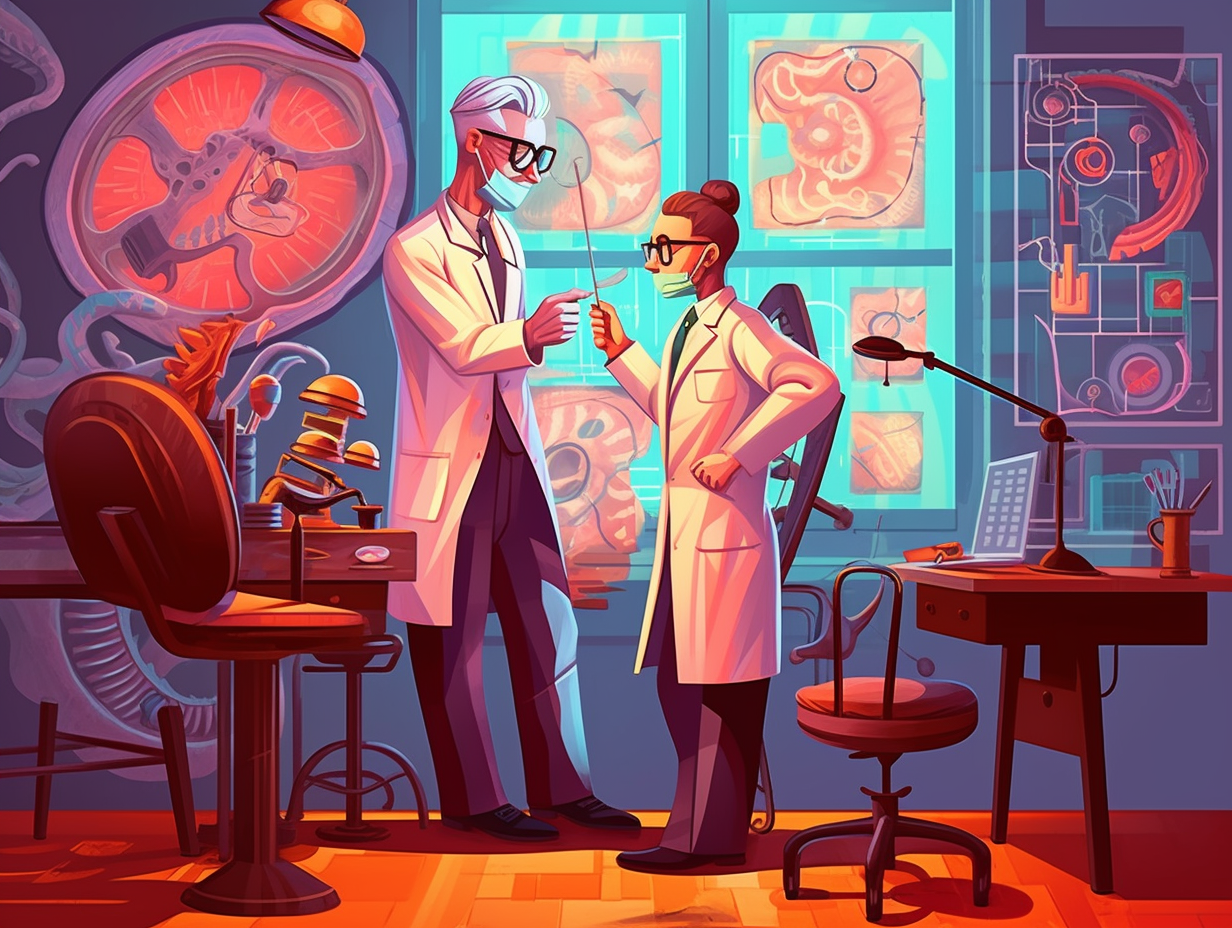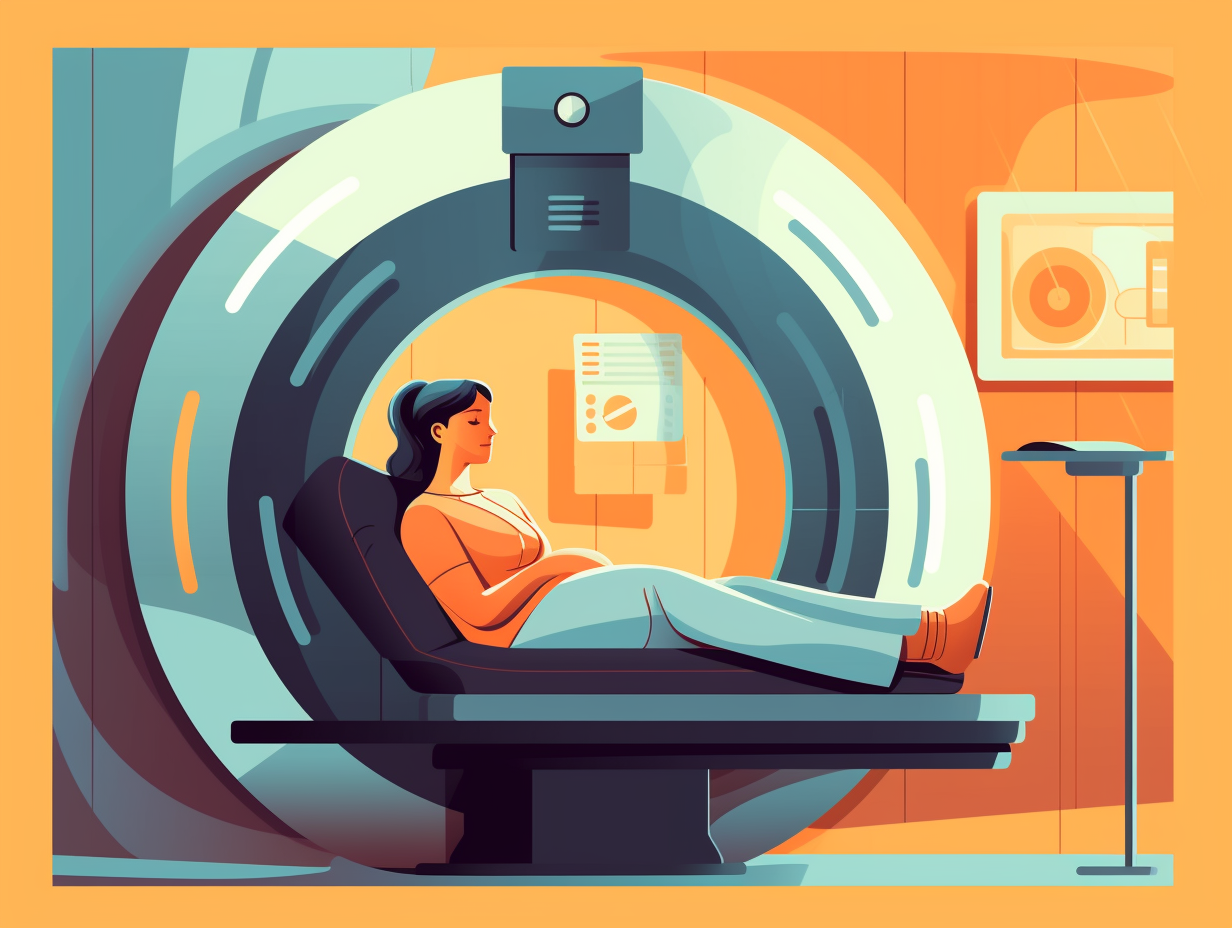Brain-Teasing Delights: Top 13 Fun Facts About Neurologists You Never Knew!

1. Lost in Thought Detectives
Next time you're lost in thought, remember: a neurologist might just find you there! These fascinating brain explorers can dive deep into the electrifying world of cerebral activities, mapping your cognitive treasures and unsuspected neurological sea monsters: By monitoring electrical activity in the brain with methods like EEG, neurologists can detect conditions such as ADHD and schizophrenia, as well as evaluate a person's cognitive strengths, weaknesses, personality, IQ, and even predict a child's reading abilities before they start school – all while considering the ethical implications of uncovering and playing with the marbles inside our heads.
Source => blogs.scientificamerican.com
2. Whodunits of the Nervous System
Like modern Sherlock Holmeses wielding stethoscopes and reflex hammers, neurologists sleuth their way through the whodunits of the nervous system: These medical detectives rely on scrupulous clinical history and examination, bolstered by cutting-edge structural and functional neuroimaging, to pinpoint the exact location of system lesions and diagnose their underlying causes – all while championing the time-honored tradition of clinical-anatomical correlation.
Source => thelancet.com

Did you know that during the Middle Ages, human dissection was considered blasphemous and only allowed in university-sponsored sessions using executed criminals' bodies? Discover more intriguing facts about the history of medicine!
=> Fun Facts about Medical-Scientists
3. Medical Super-Sherlocks
You might call neurologists the "Sherlocks of the medical world" – sporting superhuman observational skills that would give even Holmes a run for his money: With their extensive medical training and expertise in the nervous system, they deftly diagnose and treat a medley of neurological disorders, often detecting subtle changes in patients' physical and mental states before anyone else even has a clue.
Source => indeed.com
4. Brainiac Maestros
Neurologists may not be able to "brain-swap" like mad scientists in sci-fi movies, but they've got their own set of superpowers in the realm of medical science: These intellectual maestros specialize in treating and managing neurological conditions like epilepsy and ALS with medication and therapy, leaving the surgical procedures to their cousins in white coats, the neurosurgeons!
Source => medipulse.in

5. Remixing Brainwaves
When neurologists aren't busy being the brainiacs of the medical world, they're putting on their DJ hats and remixing brainwaves: Using electroencephalograms (EEGs), they diagnose and monitor conditions like epilepsy, sleep disorders, dementia, brain inflammation, head injuries, concussions, and brain tumors by recording and analyzing the electrical signals produced by the brain with small sensors attached to the scalp.
Source => nhs.uk
6. Snap, Crackle, and Pop Scans
When neurologists play "Snap, Crackle, and Pop," they're not just enjoying a bowl of Rice Krispies—they're choosing between CT and MRI scans to diagnose neuro-noodlers: CT scans are the go-to option for quick, affordable, and bone-friendly imaging, while MRIs step in for detailed brain dabbling in kids and serial diagnosing stints. But, leave it to the pros to know when it's time for a peep into the cranial candy store!
Source => radiology.ucsf.edu
7. The Parkinson's Dream Team
Did you ever hear the one about the motley crew of specialists who walk into a Parkinson's patient's life? Well, they're quite the lifesavers: A multidisciplinary team, including a Parkinson's nurse specialist, neurologist, physiotherapist, and more, has been proven to significantly improve the quality of life and motor function for those suffering from the disease.
Source => ncbi.nlm.nih.gov
8. Locked-in Syndrome Ninjas
Say hello to the brain bouncers: neurologists have successfully moonlighted as veritable superheroes when it comes to diagnosing and treating the rare and enigmatic Locked-in syndrome (LIS). In true neurological-ninja style, they swiftly differentiate LIS from dastardly doppelgangers like coma or akinetic mutism: Armed with the power of timely recognition and supportive care, these brain-whisperers can help LIS survivors achieve a faster recovery and improved quality of life through early rehabilitation.
Source => ncbi.nlm.nih.gov
9. Long Brain Scans Explained
Did you hear about the neurologist who walked into a bar? The bartender asked, "Why the long brain scans?" Turns out, they're more than just overanalyzing enthusiasts: Neurologists diagnose and treat neurological disorders, conduct research on the nervous system, and have made groundbreaking discoveries about conditions like Alzheimer's disease, Parkinson's disease, and multiple sclerosis – using advanced imaging techniques to unravel the enigma of our brain's communication with the rest of the body.
Source => dphhs.mt.gov

10. Affairs of the Brain and Heart
When neurologists aren't busy getting a "head-start" on understanding the secrets of the noodle upstairs, they're diving deep into affairs of the heart: Research shows that vascular risk factors like hypertension, diabetes, obesity, and atrial fibrillation can lead to cognitive decline and dementia, including Alzheimer's disease, prompting the American Heart Association to invest $43 million towards studying the links between vascular and neurodegenerative disorders.
Source => ahajournals.org
11. Brain Teasers Prescription
If Sherlock Holmes had a degree in neurology instead of detective work, he might have prescribed brain teasers instead of chasing criminals: Neurologists are known for enhancing cognitive health in their patients by recommending lifestyle changes such as a plant-based diet, regular exercise, good sleep habits, and stress reduction, as well as suggesting mentally stimulating activities like learning new languages, playing games, and solving puzzles.
Source => positivepsychology.com
12. Lumbar Punctures Unleashed
You might call it the "spinal tap" of the medical world, but unlike the fictional rock band, this procedure makes a real impact on the spinal cord: Neurologists perform lumbar punctures by inserting a hollow needle into the lower back to withdraw cerebrospinal fluid and diagnose various diseases and disorders, including meningitis, encephalitis, certain cancers, and Guillain-Barré syndrome, although they must be cautious of possible risks like CSF leakage, short-term numbness, lower back pain, and bleeding in the spinal canal.
Source => hopkinsmedicine.org
13. Insomniacs' Sleep Therapy
Counting sheep losing its charm? Join the 6% of insomniacs who party all night in the land of nod's waiting room: Neurologists suggest that cognitive behavioral therapy trumps sleeping pills, with large effect sizes to treat primary insomnia, especially among old souls and nocturnal ladies.
Source => ncbi.nlm.nih.gov
Related Fun Facts




















